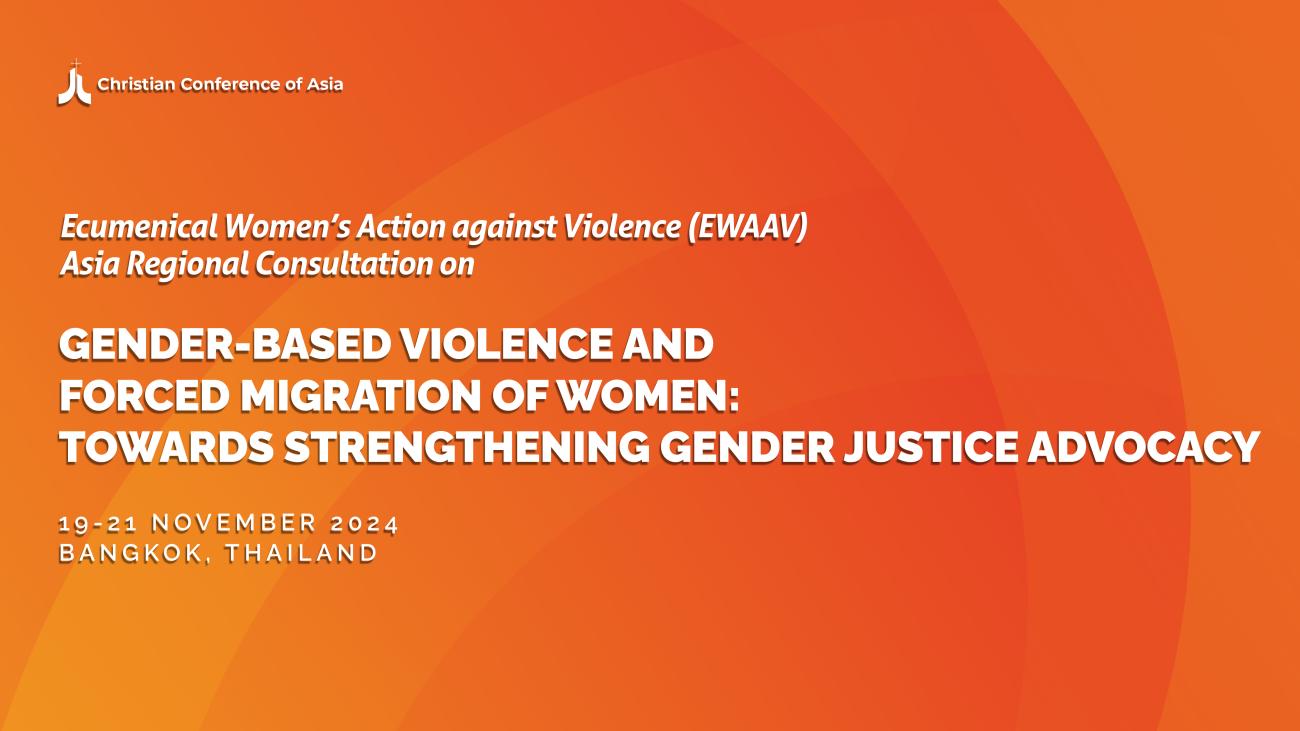Asian Church women to deliberate on Gender-Based Violence and Forced Migration

Chiang Mai, Thailand: The Asia regional consultation of the Christian Conference of Asia (CCA) with the theme “Gender-Based Violence and Forced Migration of Women: Towards Strengthening Gender Justice Advocacy” will be held at Bangkok Christian Guest House from 19 to 21 November 2024 in Bangkok, Thailand.
The regional consultation, organised as part of a series of programmes on the Ecumenical Women’s Action Against Violence (EWAAV), will focus on empowering women's capacity to advocate against the growing issue of gender-based violence.
It will also emphasise theological principles that promote gender justice and foster solidarity among women.
The consultation will bring together 30 women representatives selected from CCA member churches across Asia to explore strategies for advancing gender justice in the region and collective advocacy against gender-based violence, trafficking of women, and forced migration.
Participants will also examine the role of the church and ecumenical networks in addressing violence against women and develop actionable methods to support women’s rights and welfare.
Featuring workshops, plenary sessions, and addresses by eminent speakers on pressing topics such as ‘Gender-Based Violence in Asia: Emerging Trends and Strategic Approaches in Addressing the Issues’, ‘Gender Justice Advocacy in Churches’, ‘Gender Approach to Migration: Role of Churches in Local Contexts’, and ‘Tools and Strategies for Gender Justice Advocacy at National and Regional Levels’, the consultation aims to provide participants with practical means and approaches to advocate for gender justice within their communities and beyond.
Gender-based violence remains a pervasive challenge in Asia, with statistics indicating a higher prevalence than global rates. Women across the region face violence in multiple forms, including domestic abuse, online harassment, labour exploitation and forced conversions.The rise in migration further aggravates these issues, especially for women from ethnic minorities and underrepresented groups, who face increased risks of trafficking and forced labour in dangerous conditions.
The EWAAV regional consultation will address several critical concerns affecting women in Asia and aim to empower church women to lead advocacy efforts against gender-based violence and forced migration, increase awareness of injustice against women, and promote responses to support women’s rights across Asia.










